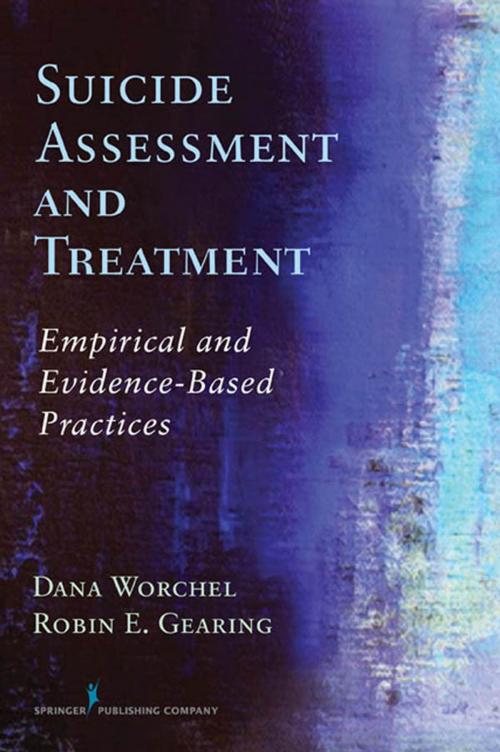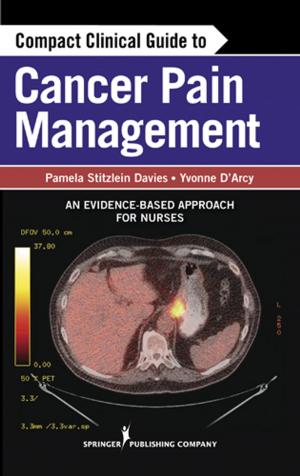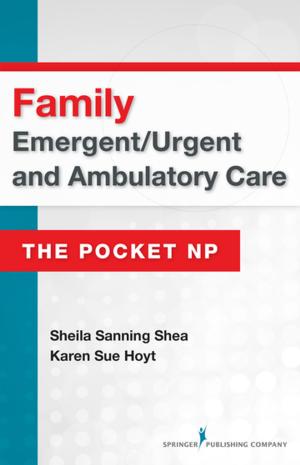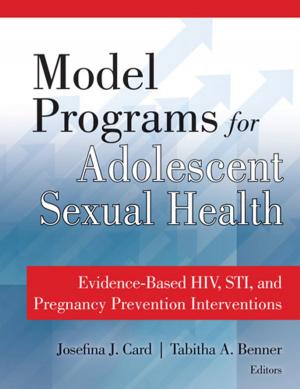Suicide Assessment and Treatment
Empirical and Evidence-Based Practices
Nonfiction, Health & Well Being, Psychology, Suicide, Social & Cultural Studies, Social Science, Social Work| Author: | Dana Alonzo, Ph.D., Robin E. Gearing, Ph.D. | ISBN: | 9780826116994 |
| Publisher: | Springer Publishing Company | Publication: | April 29, 2010 |
| Imprint: | Springer Publishing Company | Language: | English |
| Author: | Dana Alonzo, Ph.D., Robin E. Gearing, Ph.D. |
| ISBN: | 9780826116994 |
| Publisher: | Springer Publishing Company |
| Publication: | April 29, 2010 |
| Imprint: | Springer Publishing Company |
| Language: | English |
Suicide is an event that cannot be ignored, minimized, or left untreated. However, all too often mental health professionals and health care practitioners are unprepared to treat suicidal clients. This text offers the latest guidance to frontline professionals who will likely encounter such clients throughout their careers, and to educators teaching future clinicians.
The book discusses how to react when clients reveal suicidal thoughts; the components of comprehensive suicide assessments; evidence-based treatments such as crisis intervention, cognitive behavior therapy, dialectical behavior therapy, and more; and ethical and legal issues that may arise. Case studies, exercises, quizzes, and other features make this a must-have reference for graduate level courses.
Key topics:
Risk and identification of suicidal behaviors across the lifespan (children, adolescents, adults, and the elderly)
The links between suicidality and mental illness (psychotic disorders, mood disorders, and substance abuse)
Suicide risk among special populations (military personnel, LGBTQ individuals, the homeless, and more)
A model for crisis intervention with suicidal individuals
Suicide is an event that cannot be ignored, minimized, or left untreated. However, all too often mental health professionals and health care practitioners are unprepared to treat suicidal clients. This text offers the latest guidance to frontline professionals who will likely encounter such clients throughout their careers, and to educators teaching future clinicians.
The book discusses how to react when clients reveal suicidal thoughts; the components of comprehensive suicide assessments; evidence-based treatments such as crisis intervention, cognitive behavior therapy, dialectical behavior therapy, and more; and ethical and legal issues that may arise. Case studies, exercises, quizzes, and other features make this a must-have reference for graduate level courses.
Key topics:
Risk and identification of suicidal behaviors across the lifespan (children, adolescents, adults, and the elderly)
The links between suicidality and mental illness (psychotic disorders, mood disorders, and substance abuse)
Suicide risk among special populations (military personnel, LGBTQ individuals, the homeless, and more)
A model for crisis intervention with suicidal individuals















